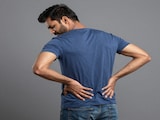Air pollution is the presence of harmful substances in the air we breathe, including gases, chemicals, and particulate matter from sources like factories, vehicles, and natural processes. Exposure to polluted air has serious health impacts. It can aggravate respiratory issues, trigger asthma, increase the risk of lung infections, and even contribute to heart disease and strokes over time. Children, the elderly, and those with existing health conditions are particularly vulnerable. Fortunately, there are ways to protect ourselves. In this article, we discuss in detail how air pollution affects your health and how can you protect yourself from it.
Air pollution affects health in multiple ways, as inhaling polluted air can lead to both immediate and long-term health issues. Short-term exposure to pollutants like particulate matter, nitrogen dioxide, and sulphur dioxide can cause respiratory irritation, coughing, shortness of breath, and worsen asthma and allergies. Long-term exposure increases the risk of chronic respiratory diseases, lung cancer, cardiovascular disease, and even developmental issues in children. Pollutants like fine particulate matter (PM2.5) can penetrate deeply into the lungs, entering the bloodstream and affecting organs throughout the body.
To protect yourself from air pollution, consider the following tips:
Keeping track of the local air quality index (AQI) is essential. Most weather apps and websites provide AQI updates, which indicate pollution levels. On days when the AQI is high, it's best to limit outdoor activities, especially strenuous exercise that can cause deeper breathing and higher intake of pollutants.
Indoor air quality can also suffer from pollutants, especially in urban areas or homes close to busy streets. An air purifier with a HEPA filter can remove particulate matter and allergens, creating a cleaner breathing environment. It's particularly helpful in rooms where you spend a lot of time, like bedrooms or home offices.
When pollution levels are high, wearing a mask, particularly an N95 or N99 respirator, can filter out fine particles from the air. These masks are designed to protect against small pollutants. Using a mask while commuting or during outdoor activities in high-pollution areas can greatly reduce exposure to harmful air particles.
While it's beneficial to ventilate indoor spaces, it's important to do so strategically. Open windows and doors when outdoor air quality is better, typically early in the morning or late at night. Using exhaust fans in the kitchen and bathroom can help remove indoor pollutants generated by cooking, cleaning, and other household activities.
Staying hydrated supports your body in flushing out toxins. Additionally, a diet rich in antioxidants, found in fruits and vegetables like berries, spinach, and nuts, helps combat oxidative stress caused by pollutants. Nutrients like vitamin C, vitamin E, and omega-3 fatty acids are particularly helpful in protecting cells from pollution-induced damage.
Certain indoor plants can help improve air quality by absorbing pollutants and releasing oxygen. Plants like snake plants, peace lilies, and spider plants are known for their air-purifying properties and can contribute to a healthier indoor environment.
By following these tips, you can reduce the health risks associated with air pollution and create a safer environment for yourself and your loved ones.
Disclaimer: This content including advice provides generic information only. It is in no way a substitute for a qualified medical opinion. Always consult a specialist or your own doctor for more information. NDTV does not claim responsibility for this information.















